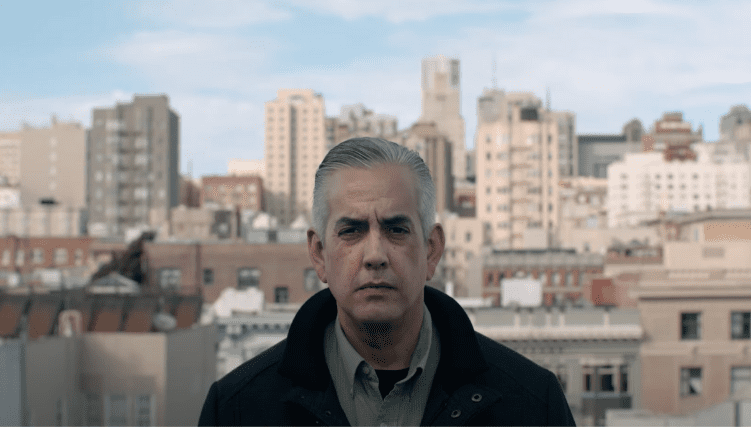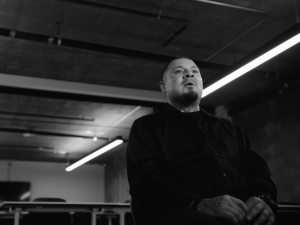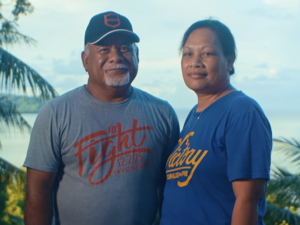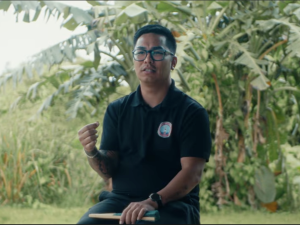Thomas Wolf had a wife and two kids, was a homeowner and successful case worker in San Francisco. That all came crashing down when he became addicted to painkillers as a result of a surgery.
As his addiction took over his life, he lost everything, ending up on the streets of the Tenderloin District. With nothing left, Thomas needed a path to break the cycle of addiction.
Witness how God brought Thomas to The Salvation Army Adult Rehabilitation Center to get clean and start his life anew.
Below is a transcript of the video edited for readability.
Thomas Wolf: I knew that the big taboo drug when I was growing up was heroin, and that was something that I’d always told myself that I would never get to because once you get to that point, there is kind of no coming back.
Lieutenant Jen Liggett: The level of drug use that’s prevalent in our nation today is getting dramatically worse. We have those that perhaps were born into a tough situation and started using drugs very early on in their life. And then, we have those that were functioning well in society and that something tragic happened to them in their life that kind of sent them spiraling downward. Methamphetamine and the opioid crisis is a real thing.
Thomas: I’ve been married for 21 years. I have two kids. I had a government job, and all of that was slowly taken away because of my addiction. I had surgery. They prescribed me opioids for the pain. Because of the immediate euphoria, I actually got high. I started abusing them pretty much right away. As I became more and more addicted, my doctor would no longer prescribe the oxycodone pills. So, I saw them out on the street, and that brought me down to the tenderloin neighborhood.
At the peak of my addiction, I was using five to six hundred milligrams per day, which would kill you. I had stopped paying the mortgage, and I was using my entire paycheck pretty much to buy drugs. And then the levee broke when my wife was getting notices of foreclosure on the house. So, I purchased heroin, which is a fraction of the price.
One night, I took the car, and I didn’t come home for eleven days. My wife gave me an ultimatum at that point to say, “Either you go to rehab, or you need to leave the home.” And I was not ready to go to rehab. My life had gotten that small that I was sitting between two cars, smoking heroin, sleeping on the street.
I was arrested a total of six times, and four out of those six times, Officer Gilson was the one that arrested me and took me to jail. And the last time that he arrested me, he sat me down, and he said, “Look, I don’t know what you’re going through, but you’re skinny, you’re dirty. Get yourself some help and get back to your family.” I reached out to my brother, and he said, “I’ll bail you out on the condition that you go to The Salvation Army rehab.”
I remember walking up those steps at the ARC [Adult Rehabilitation Center]. I had all this guilt. I had all this shame. I was missing my wife. I was missing my kids. But, I knew that there’s no road back to them through the street.
Lieutenant Jen: Generally, the men and women that come to us are quite broken. But when they get here, they go to classes. They go to chapel. We teach them how to live a clean and sober life from the inside out.
Thomas: First of all, they made me feel normal. Waking up at a certain time, having to shave every day, those were things that I had let go of in my addiction that really helped me start healing.
Lieutenant Jen: The Salvation Army’s mission here is to do some holistic healing where we can show people how to stand on their own two feet and introduce them to Jesus if they don’t know Jesus and to lead them into a better life.
Thomas: I’m grateful to The Salvation Army. I went through a six-month in-patient program where I was housed, clothed, fed, given 12-step faith-based rehab, and counseling for free.
Whenever you get arrested in San Francisco by the SFPD Tenderloin Station, they post your mug shot on Twitter, and so I posted a response saying, “I’m now in recovery. I want to thank The Salvation Army and SFPD for helping me get my life back together.” And that tweet went viral.
Major Raymond Erickson-King: I kept seeing the story come up with Thomas Wolfe. I wrote to his Facebook account and said, “We have some openings here at The Salvation Army Railton Place [and] you seem qualified.”
Ravinn Lore, Ph.D.: Major Raymond saw Thomas looking for work and said, “What do you think?” I said, “I’m open to an interview.” It worked out because he’s here with us.
Thomas: My first day was so surreal. I’m starting a job two blocks from where I was sleeping on the street. I can’t believe that I’m here.
Major Raymond: Thomas is a great example to those in our program because he’s been on the streets, and he can share with them how you can break that cycle.
Thomas: So now, you know, I’m working full time. I’m back in my family’s lives in a big way, and I’m in counseling with my wife, trying to reconcile.
Ravinn: A lot of times, when we see homelessness or drug users on the streets, people tend to think that’s where they always will be. Thomas knows that during the five years, that was not him, and he found his way home, literally.
Thomas: I can honestly say that my life is better now than it was before I even got sick, and that’s because I can be honest with myself. I can be honest with my family, and I have faith. One definition of faith in the Bible is believing in things you cannot see and the hope of things to come. I remember sitting in jail, meeting with my public defender, and he said, “Well, you know you’re forty-eight. You’re pretty much retired already.” And I thought to myself, “There’s no way that my life can be over at forty-eight.”
So here I am now, turning fifty in three months, and I’m clean, I’m sober, I’m back in my family’s lives, and I work full time, and this is just the beginning.
Do Good:
- See more videos like this in our video feed.
- Are you a Do Gooder, someone who cares about bringing goodness into the life of your family and community? Subscribe to The Do Gooders Podcast to be inspired by those doing good and find tangible tips for simple actions you can take today.
- Did you know The Salvation Army served more than 23 million Americans last year fighting hunger, homelessness, substance abuse and more—all in a fight for good? Where can you help? Take our quiz to find your cause and learn how you can join in today.












